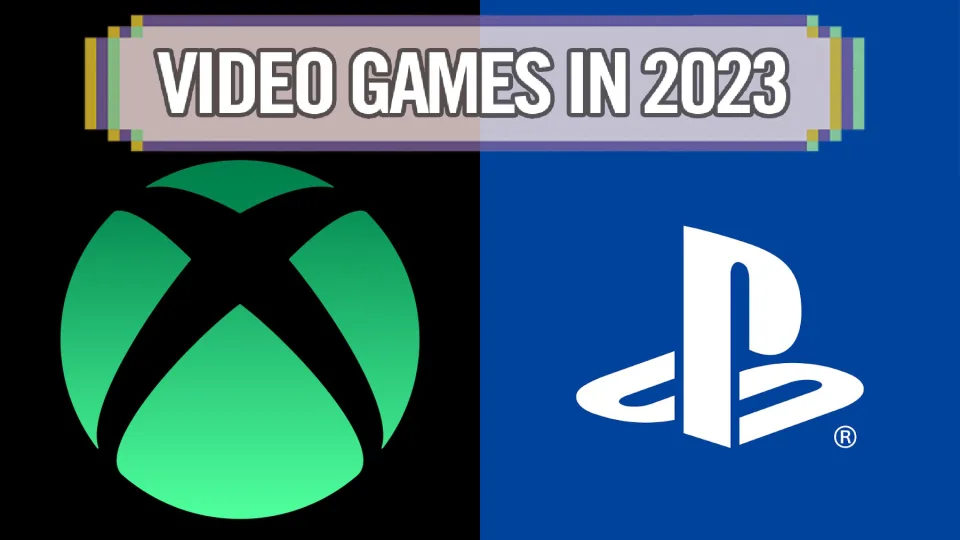Greetings and welcome to our weekly recap of gaming news. With the year drawing to a close, let’s reflect on the past 12 months, marked by significant shifts in the video game industry, including acquisitions, workforce changes, and the emergence of unionization. For more details on the challenges faced by the gaming world this year, check out my in-depth article on industry consolidation.
This week’s stories
No Game Pass for Baldur’s Gate 3
Baldur’s Gate 3 has been crowned Game of the Year, and after an exclusive run on PlayStation consoles, it has now made its debut on Xbox. Yet, if you’re anticipating its arrival on Game Pass, your wait is in vain. Larian Studios founder Swen Vincke has made it clear: Baldur’s Gate 3 will never be available on Xbox or PC Game Pass. The game, with its impressive scale and content, is offered at a fixed price of $70 – it’s a simple choice of accepting it or opting out.
The Last of Us Online is dead

Naughty Dog has officially called off The Last of Us Online, the long-awaited multiplayer spinoff that has been in development for several years. While the lack of updates on the game had hinted at this outcome, the confirmation has now been provided. Naughty Dog cited resource constraints as the reason, emphasizing the challenge of supporting a live-service game alongside the creation of new single-player narrative experiences—an area where the studio has a strong historical focus. It’s worth noting that Naughty Dog currently has multiple single-player narrative games in active development.
2023 was a pivotal year in games
The year 2023 witnessed significant upheaval in the video game industry, with three key factors shaping its landscape: consolidation, layoffs, and unionization.
In the realm of consolidation, the standout event was the approval of Microsoft’s colossal $69 billion acquisition of Activision Blizzard King. This move catapulted Microsoft to the position of the third-largest video game business globally in terms of revenue, trailing closely behind Sony and Tencent. Under the Xbox umbrella, Microsoft now oversees an impressive array of almost 40 studios, including renowned names such as Arkane, Bethesda, id Software, Infinity Ward, Mojang, Ninja Theory, Playground Games, 343 Industries, and Turn 10.
Sony, while adopting a more understated approach compared to Microsoft, has quietly expanded its influence. With ownership of 21 development teams, including Bungie, Guerrilla Games, Haven Studios, Insomniac, Naughty Dog, and Sucker Punch Productions, Sony has strategically bolstered its portfolio through acquisitions and substantial investments in studios like Epic Games and FromSoftware over the past three years.
Tencent, a ubiquitous force in the industry, boasts a vast network of holdings. The company has stakes in Bloober Team, Paradox Interactive, PlatinumGames, Remedy, Roblox, and Ubisoft, among others. It holds a majority stake in Supercell, Tequila Works, Techland, and other entities. Tencent also boasts full ownership of Riot Games, Funcom, and various others, in addition to managing multiple internal development companies and publishing labels. Its influence is pervasive, with tendrils extending throughout the gaming ecosystem.
Tencent’s 40 percent ownership stake in Epic Games underscores its extensive reach in the gaming industry. This means that whenever a game built on the Unreal Engine is purchased, Tencent receives a share of the proceeds. Essentially, if you engaged in gaming activities this year, Tencent likely played a role in some capacity.
While being acquired by a larger company presents immediate advantages, such as financial support, there are inherent drawbacks to surrendering independence. Acquired studios find themselves accountable to external figures who may be detached from the actual creative development process, and the larger the acquiring company, the greater the distance from the creative core.
One of the most severe consequences for indie studios under new ownership is the potential for layoffs and closures. Unfortunately, 2023 witnessed a surge in such negative outcomes. Approximately 9,000 individuals lost their jobs in the video game industry this year, a stark increase from the roughly 1,000 in 2022. This spike in job losses reached crisis levels and was largely fueled by ambitious acquisition sprees by major companies. Embracer Group, for instance, the owner of over 100 video game studios, implemented extensive layoffs, affecting more than 900 people, and went as far as shuttering multiple studios completely.
The year 2023 witnessed significant layoffs across several major players in the gaming industry. Unity, despite reporting a remarkable 69 percent yearly revenue increase in November, laid off approximately 900 employees. Epic Games, despite its robust financial performance, terminated around 830 individuals, including a portion of the team at Mediatonic, the studio behind Fall Guys, which Epic Games had acquired in 2021. Electronic Arts (EA) also made substantial cuts, letting go of over 1,000 employees, with significant impacts on Codemasters, a studio acquired in 2021. CD Projekt RED, Sega, Ubisoft, and Microsoft’s 343 Industries were among others that implemented layoffs, each affecting at least 100 people.
The juxtaposition of thriving revenues and mass layoffs has sparked concerns and raised questions about the industry’s trajectory. The consolidation trend, where a few companies gain control over numerous studios, seems to be exposing these studios to vulnerability, making them susceptible to large-scale layoffs and closures. This trend suggests a potential future where the gaming industry becomes more confined and homogenized.
As the foundation for the future of video games is being laid, the consequences of consolidation are becoming increasingly apparent. The current path raises critical questions about the fate of acquired studios in the next five years. What happens when these studios are no longer considered new and shiny investments? How will the industry cope when the focus at the top shifts towards efficiency and streamlining, potentially leading to further workforce reductions? The industry is at a crossroads, and the impact of consolidation on creativity, diversity, and the overall landscape of video games remains uncertain.
Unionization has emerged as a crucial avenue for safeguarding the well-being of individuals in the video game industry, and notable strides were made in this direction in 2023. Developers at various studios, ranging from small indie developers to major AAA players, now benefit from union support. Microsoft stands out as the home of the industry’s largest union, representing over 300 quality assurance workers at ZeniMax Media.
Several other companies have seen the establishment of unions in the past two years, signaling a positive trend in the industry. This includes companies such as Avalanche Studios, Anemone Hug, CD Projekt RED, Experis Game Solutions, Keywords Studios, Sega of America, Tender Claws, and Workinman Interactive. The presence of unions provides a vital mechanism for workers to advocate for their rights and collectively address concerns.
This progress in unionization is a welcome development, and its continuation is crucial for maintaining stability within the industry. As the video game landscape evolves, the presence of unions can contribute to fostering a more equitable and secure environment for all individuals involved in game development.
Now playing
It’s wonderful to hear that you’re thoroughly enjoying The Talos Principle II, especially after the anticipation built from your preview and interviews with the developers. Playing the game on a Steam Deck OLED adds to the experience, and it sounds like you’re immersed in solving laser puzzles and engaging in profound conversations about the meaning of life with the game’s robot characters. Your enthusiastic recommendation is sure to resonate with others, encouraging them to embark on a similar gaming journey. Happy gaming, and may the puzzles and philosophical dialogues continue to captivate your experience!




